Python Developer Training in Hyderabad, IN
(4.9) 2345 ratings.

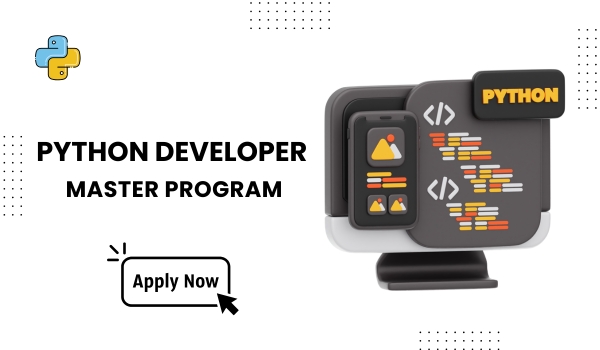
(4.9) 2345 ratings.


Next Batch Starts
Program Duration
Learning Format
GoLogica Academic's Master Program features a structured curriculum, paving the way to Global scope.
GoLogica having a 15+ years of experience on career transforming programs with industrial oriented Skills.
GoLogica Advanced Programs delivers cutting-edge AI Training, offering insights into the latest trends.
GoLogica emphasizes practical learning with exercises, projects to equip you with real world application.

The Python Developer course, provided by GoLogica in Hyderabad, covers object-oriented programming (OOPs), basic programming ideas, and a deep understanding of Python data structures. Through the optimal use of time and space in these online sessions, the students will not only become more proficient with their solutions but also acquire a strong basis for success in all programming interviews. These beginning Python courses' main objective is to provide students with plenty of opportunities to experience solving problems based on different programming methodologies while maintaining a balance between theory and practice.
With subjects like web programming, chatbot creation, accessing online APIs, building apps with Flask and Django, and Python for Data Science, this course offers an introduction to Python development. It extends beyond basic programming tasks. In the last section of the course, we look at automation using Selenium, a helpful tool for automating time-consuming Python tasks.
Our extensive course, which is intended to give students an in-depth understanding of the newest web development technologies and methodologies, is called the Master Program in Python Full Stack Development certification training. The curriculum is taught by seasoned instructors with subject-matter knowledge. Among the topics addressed in great detail in this course are database management, deployment, and frontend and backend development. Students will also enhance their skills and become ready for a web development job by gaining real-world experience through working on projects. When learners finish our Master's Program in Python Development certification course, they will possess the skills and knowledge needed to develop dynamic and responsive web apps using the newest tools and technologies. It's a terrific tool for people who want to advance in the web development sector because this certification is widely recognized.
Learners have a rare opportunity to gain expertise in two in-demand industries with our Data Science with Master Program in Python Full Stack Development course. Learners will be able to create reliable, dynamic websites that are driven by data by fusing web development with data science.
The course is taught by seasoned professors with expertise in both web development and data science, so learners are guaranteed a full education encompassing the latest technologies and methodologies. Students can put the information and abilities that they have learned in the course to use through the program by gaining real-world experience handling projects.
Python was mainly developed for emphasis on code readability, and its syntax allows programmer to express concepts in fewer lines of code.Python is considered a scripting, language like Ruby or Perl and is often used for creating Web applications and dynamic Web content.
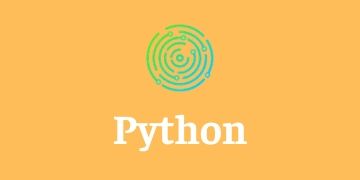
GoLogica provides Data Science with Python Training This course has been designed with a focus on quality and simplicity making it ideal for Beginners or for those looking for a refresher on Data Science with Python. It gives an engaging learning experience covering everything you need to know about Data Science.
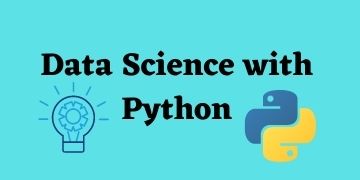
GoLogica offers high-quality Python Django Training, specifically designed to cater to both beginners and individuals seeking a refresher on Python Django. This comprehensive course aims to provide a simplified learning experience, ensuring a solid understanding of Python Django Development. Begin your learning journey with GoLogica's Python Django Training. Our online training course offers an excellent opportunity to delve into the world of Python Django.
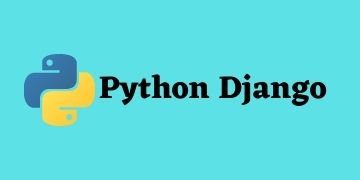
Programming Basics and Data Analytics with Python is a complete course offered by GoLogica. Learn the fundamentals of programming and data analytics using Python. Gain skills in programming fundamentals, data manipulation, statistical analysis, and data visualization.
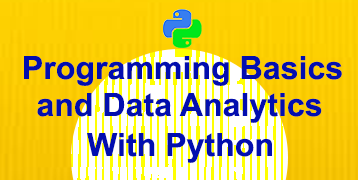
GoLogica provides online lessons to help you get better and advance in your work. Join our Python data science course to learn Python skills, work with data, and get better at stats and machine learning. Make cool pictures too Learn from teachers who know a lot, work on real projects, and grow in the world of data science. Come with us now for a practical learning session.
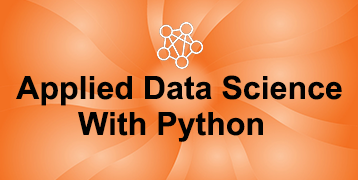


This will help you to better understand the Python.
you will be able to grow your career by broadening your proficiency in Python.
With this, the students will be able to decide their careers in the right way.
We Help with face-to-face interaction through mock interviews & Exams

Powered by
Paypal
Debit/Credit
UPI
GoLogica Python Developer Certification holds accreditation from major global companies worldwide. Upon completion of both theoretical and practical sessions, we offer certification to both freshers and corporate trainees. Our certification on Python Developer is recognized globally through GoLogica, significantly enhances the value of your resume, opening doors to prominent job positions within leading MNCs. Attainment of this certification is contingent upon the successful completion of our training program and practical projects.
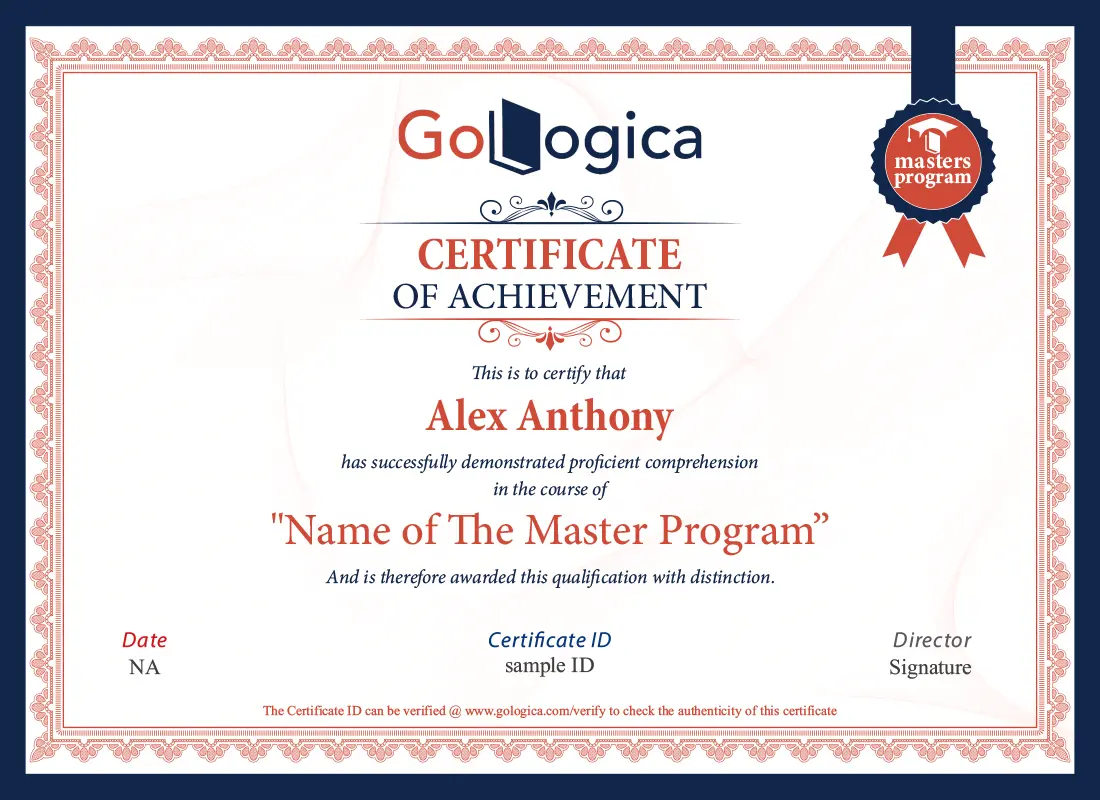
The U.S. Bureau of Labor Statistics (BLS) forecasts a 17% increase in employment for Python developers from 2021 to 2031, significantly outpacing the average for all occupations. Additionally, Python Ventures predicts 3.8 million unfilled Python jobs worldwide by 2027.
According to the BLS, Python professionals are well-compensated. The median annual wage for an Python Developers was$98,378 to $176,210 PA, depending on factors such as experience, location, and specific job responsibilities.
Are you preparing for a interview? If yes, our expert tutors will help you with this.

240 learners (4.6) 6 Months View Program
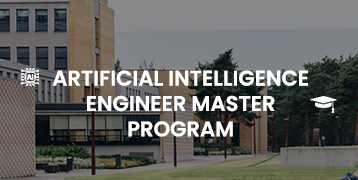
223 learners (4.5) 6 Months View Program
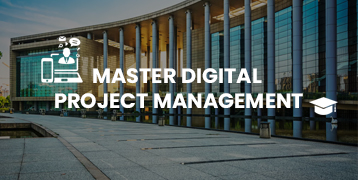
183 learners (4.7) 6 Months View Program
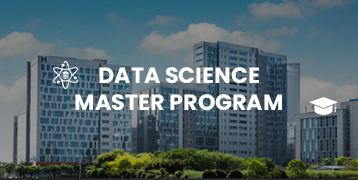
300 learners (5) 6 Months View Program